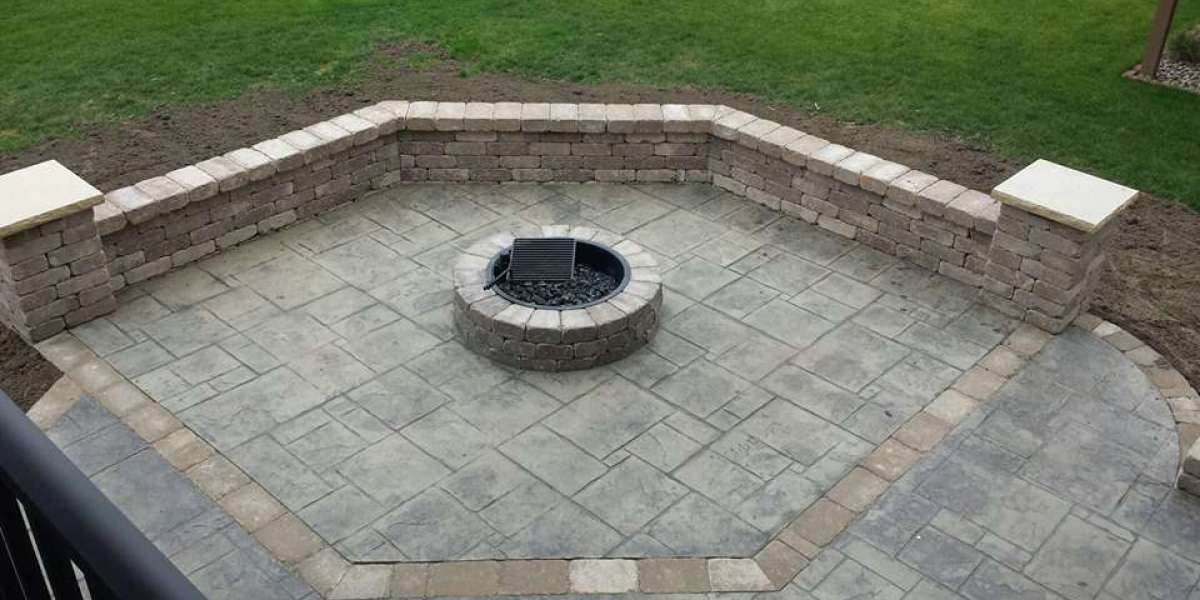When it comes to enhancing your home's curb appeal and functionality, few features make as lasting an impression—or provide as much daily utility—as your driveway. And while there are several materials to choose from, concrete driveways remain one of the most popular and durable options for homeowners across the country.
But what exactly makes concrete such a solid choice? From longevity and cost-effectiveness to aesthetics and low maintenance, there’s a lot to consider. Whether you’re planning a new installation or replacing an aging driveway, this comprehensive guide will walk you through everything you need to know about concrete driveways.
Why Choose a Concrete Driveway?
1. Durability and Longevity
Concrete is one of the most long-lasting driveway materials available. With proper installation and minimal upkeep, a concrete driveway can last 30 to 40 years or more. It's strong enough to support heavy vehicles, resistant to weather damage, and less likely to develop potholes or surface degradation than alternatives like asphalt or gravel.
2. Low Maintenance
Once it's installed, a concrete driveway requires very little to keep it looking and performing well. Occasional sweeping, rinsing, and sealing every few years are usually enough. You won't need frequent repairs, and stains can be removed with common cleaners.
3. Curb Appeal
Concrete doesn’t have to be plain or boring. Today’s homeowners can choose from a wide range of textures, colors, and finishes to complement their home’s style. Decorative concrete options—like stamped patterns, exposed aggregate, or colored finishes—can give your driveway a high-end, custom look.
4. Environmental and Economic Efficiency
While the initial cost may be higher than materials like asphalt or gravel, concrete’s long lifespan and low upkeep often make it more economical in the long run. Additionally, because concrete is lighter in color, it reflects heat instead of absorbing it, which can help reduce the "heat island" effect in urban areas.
How Much Does a Concrete Driveway Cost?
One of the most common questions homeowners ask is, “How much is this going to cost?”
The price of a concrete driveway varies depending on several factors:
- Size of the driveway
- Thickness of the slab (usually 4–6 inches)
- Local labor rates
- Type of finish (standard broom, stamped, colored, etc.)
- Site conditions and preparation
On average, a basic concrete driveway costs between $6 and $10 per square foot. For a typical 2-car driveway (around 600–800 square feet), you can expect to pay $3,600 to $8,000. Decorative finishes can push that number higher, potentially reaching $12 to $20 per square foot.
Concrete Driveway Design Options
Modern concrete is anything but dull. Here are some popular finishing and design options:
• Broom Finish
This is the most common and cost-effective finish, providing a textured surface that offers good traction.
• Stamped Concrete
Stamped patterns mimic the look of brick, cobblestone, slate, or tile. It's a decorative touch that adds curb appeal and character.
• Colored or Stained Concrete
Concrete can be tinted during the mixing process or stained afterward to achieve a wide variety of colors that match or contrast with your home.
• Exposed Aggregate
By removing the top layer of paste during finishing, contractors can expose the gravel or stone within the mix, giving a textured and attractive look.
• Saw-Cut Patterns
Control joints are strategically placed in a decorative pattern, giving a modern, geometric style while also minimizing cracking.
The Installation Process
Installing a concrete driveway is not a DIY job for most homeowners. It requires heavy machinery, skilled labor, and proper planning. Here's a breakdown of the typical installation process:
1. Site Preparation
The area is excavated, graded, and compacted. A solid base (usually gravel or crushed stone) is laid to support the concrete slab.
2. Formwork and Reinforcement
Wood or metal forms outline the shape of the driveway. Steel rebar or wire mesh is placed within the forms to reinforce the concrete and reduce cracking.
3. Pouring the Concrete
Concrete is mixed and poured evenly into the formwork. Contractors use tools to level, smooth, and finish the surface.
4. Finishing and Curing
Depending on the finish chosen, contractors will apply brooming, stamping, staining, or sealing. The concrete then needs to cure for at least 7 days, with full strength achieved in about 28 days. During this period, it's essential to keep the surface moist and protect it from weather extremes.
Maintenance Tips for a Long-Lasting Driveway
While concrete driveways require little attention, a few simple maintenance steps can extend their life and appearance:
- Seal it every 2–4 years to protect against water, oil, and de-icing salt.
- Clean spills quickly to avoid staining.
- Avoid heavy vehicles or equipment, especially near edges, which are more prone to cracking.
- Use non-corrosive de-icing products in winter to reduce surface damage.
Common Concerns and How to Address Them
• Cracking
All concrete will crack eventually. Proper installation and joint placement reduce the risk of unsightly or structural cracks. Small cracks can be repaired with patching compounds or sealants.
• Discoloration
Uneven curing, inconsistent mixing, or weather conditions can lead to discoloration. A high-quality sealant or concrete stain can help restore a uniform look.
• Spalling or Scaling
This refers to flaking or chipping of the surface. It often occurs due to freeze-thaw cycles or the use of harsh de-icers. Regular sealing and proper finishing help prevent it.
Final Thoughts: Is a Concrete Driveway Right for You?
Concrete driveways offer an unbeatable combination of durability, beauty, and value. While the upfront cost may be higher than other materials, the long lifespan and low maintenance requirements make concrete a cost-effective and attractive investment.
Whether you want a simple, functional surface or a custom-designed entryway that boosts curb appeal, concrete gives you the flexibility and performance to meet your needs. Work with a reputable local contractor to ensure quality installation, and you'll enjoy a reliable, stylish driveway for decades to come.






